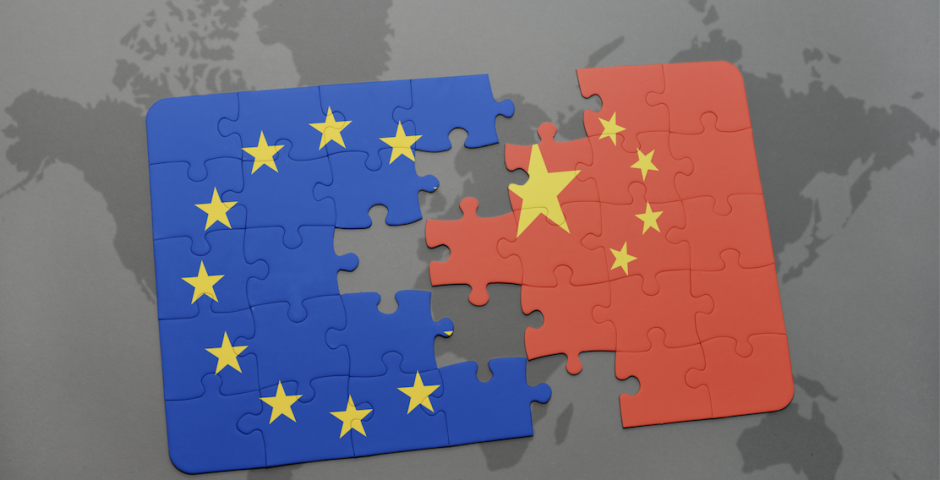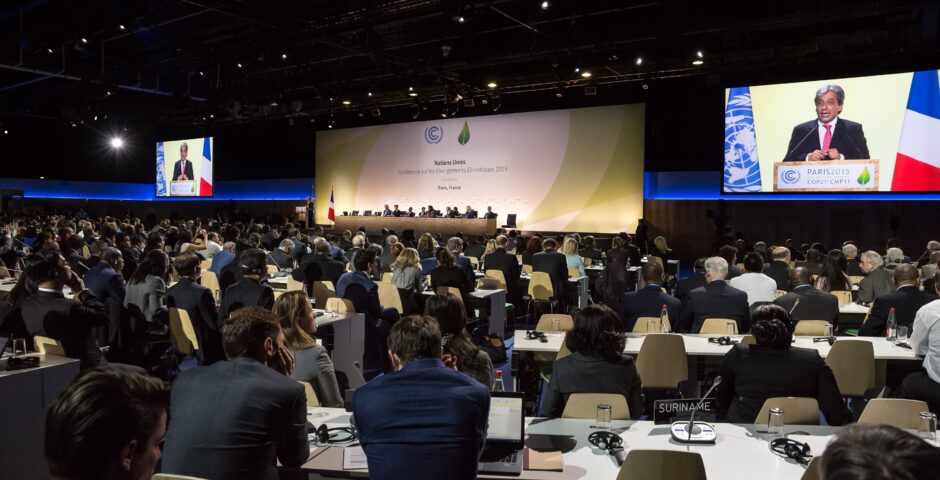The EU-China trade relationship: A story of continued imbalance? – Part II

A deep dive into Europe-China trade relations – Part II.
“The most ambitious agreement that China has ever concluded with a third country.” This is how the European Commission chose to label its recently announced “Comprehensive Agreement on Investment” (CAI) with China. A big and seemingly consequential statement, one which on the surface seems to herald a new beginning for the EU-China economic relationship. Will this be the start of a sustainable economic partnership between two of the world’s biggest economies? While this would certainly be positive, there are plenty of reasons to be sceptical. After all, China has made various promises before, in particular when it entered the World Trade Organisation (WTO), so what’s to say that the country will keep them now?
This scepticism is widely shared among academics and policy wonks, who have paid particular interest to the timing of the announcement. After all, while the EU and China have been negotiating for a deal since 2013, there was seemingly no indication that such an agreement would be reached any time soon. The breakneck speed with which the negotiations were concluded did not help its cause, including with the European Parliament. This leads many to speculate that both the EU Commission and China wanted to get out ahead of the incoming Biden Administration, which is likely to try to work with other countries to put pressure on China. As the full agreement was published on January 20th, we now know enough to be able to evaluate whether the CAI indeed promotes the values and interests of the European Union. Or whether it proves to be an ill-fated and lacklustre attempt at bridging the enormous fundamental imbalances between the EU’s free market and China’s party-state driven economy.
The geopolitical context
For the European Union, a major investment agreement is also an important political act that advances European norms and values and connects the legal systems of the EU with its signatory partner. It is this latter point that is so relevant in the case of an investment agreement with China; it is not a stretch to say that the rule of law is interpreted differently by the EU and China. Under the rule of Xi Jinping China has become more totalitarian than it has been since the late 80s when Deng Xiaoping first sought rapprochement with the world. Today, the totalitarian philosophy of the Chinese Communist Party (CCP) reaches into all aspects of social, economic and political policy; be it Hong Kong residents seeking continuation of the rights guaranteed to them, the exploitation and cultural genocide of Xinjiang’s ethnic Uighurs, the political repression used against China’s growing entrepreneurial class, the growing cult of personality surrounding Xi Jinping or, finally, the attempt at spreading disinformation about the origins of COVID-19. It is not an exaggeration to say then that the current geopolitical situation is far from optimal for finalising a comprehensive agreement – and we have not even discussed the economic issues I set out in my previous article.
At the same time, the world is going through a pandemic that has massively increased the demand for Chinese goods, especially medical products, digital devices and household appliances. This, combined with admirable handling of the coronavirus pandemic has meant that China is the only major country which has been able to avoid a recession. Furthermore, Chinese economic policy objectives run counter to the objectives promoted by the European Union. These include improving market access for investments, obtaining the same treatment for foreign and domestic companies, the neutrality of China’s state-owned enterprises in their foreign endeavours, and an increase in transparency of state subsidies – all of which would mean undermining China’s sizeable current advantage in economic terms. Perhaps these imbalances would be solvable between befriended nations with similar economic and political philosophies, but expecting China to readily give up its advantage over the EU without significant concessions on other terrains is foolhardy at best.
When we take this perspective, it is impossible not to see the strategic motivation of China’s last-minute concessions, particularly as it expects a coordinated approach by the incoming Biden Administration. Overall, it is clear that this agreement has more to do with strategic calculations on the part of China than a genuine desire to amicably resolve the significant and fundamental economic imbalances between itself and the EU. At the same time, it would be negligent not to mention the influence of the German presidency on the negotiations. Some sources even stipulate that it would have been exceedingly difficult for the EU to achieve this agreement if it weren’t for the personal involvement of Chancellor Merkel, an influence which can be seen in the Chinese concessions in the automotive sector. Keeping the geopolitical importance of this agreement in mind, let’s look at the actual implications of the agreement, both in terms of concessions by China as well as the issues of implementation and enforceability.
Market access
A major component of the CAI is market access, which boasts an impressive number of manufacturing sectors that are to be opened to European investment, ranging from agricultural processing to garment manufacturing. The automotive industry is a different story; while the further opening of this sector has been discussed, built-in restrictions ensure that there can be no foreign startups nor a real challenge to Chinese firms. Another increase in access can be seen in the liberalisation of financial services, which was first granted to American companies under the phase-one US-China trade agreement. In any case, the EU had been arguing that investment in service sectors is covered by earlier WTO rules. Because of this, the supposed list of concessions offered by China is more limited than they appear. China has made it possible for European companies to lease land long-term, and to invest in digital consulting services, research and development services, HR services and, most importantly, digital services except end-user Internet access. Biological research and, notably, Social Sciences remain excluded from European investment.
Overall, the gains for service market access appear to be minimal and limited to local entry and operation. China will still not allow European companies to offer services from the European Union, which matters particularly to data localisation. While there are no big European firms that could compete with giants like Alibaba, Tencent, and Huawei, it would be important for Europeans to have guarantees on the safety and storage of their data – the lack of rules on this matter means that it will remain unappealing for EU citizens and businesses to entrust their data to Chinese firms.
Level playing field
When looking at the provisions for a level playing field, Brussels claims that the agreement implements rules against the forced transfer of technologies, and implements measures controlling the behaviour of state-owned enterprises as well as government subsidies. However, it is important to keep in mind that the 2001 WTO accession agreement already included commitments on transparency, subsidies and state enterprises. Furthermore, China has shown recently that it does not feel bound to international agreements when it deems them inconvenient to its interests. One way in which these concerns might be mitigated somewhat is the “binding and ratcheting” clause, which ensures that China cannot reverse concessions later. It also requires China to grant the EU the same concessions they may grant any other partner at a later stage.
Another concession which China appears to have made is that of national treatment, meaning state enterprises are generally not allowed to discriminate against foreign companies. It appears that there will also be a widening of the definition of state-owned enterprises which would be important for the EU, as the Chinese Communist Party seems to want to increase its control of private companies. Overall it seems like the European Union has gained some significant commitments in terms of a level playing field. However, significant concerns as to the enforceability of these commitments remain. For many topics, among which corporate social responsibility, the environment, and labour standards there are no appeal, no sanction, and no enforcement mechanisms. Instead, EU negotiators seem to have sought a political pathway for a service investment dispute resolution. Notably, once a year a dialogue involving a vice-president of the Commission and a Chinese vice Premier has been agreed upon. Working groups will also meet at the level of the commissioner for trade (EU) and minister of commerce (China) twice a year. It seems like the hope is that, due to the hierarchical nature of the Chinese system, high-level political interactions may help with problem-solving.
Conclusion
It is clear that, while the EU-China relationship is extremely important for both parties, significant tensions continue to exist. With the continued rise of the Chinese economy, China is expected to assume an increasingly assertive role on the world stage. A role that will very often clash with fundamental European values of human rights, democracy and a social free market. For the EU this means that its relationship with China will become an ever more difficult balancing act. On the one hand, it benefits greatly from bilateral trade and investment, yet on the other, it risks being outmanoeuvred by China’s state-driven foreign investment strategy. The current imbalance in its trade and investment relationship means the EU will have to play catch-up for the foreseeable future, the success of which depends on the measures it implements to combat unfair trade and investment practices.
The current approach to investments from China is clearly insufficient. While the EU-China Comprehensive Agreement on Investment has the potential to solve the access part of the equation, it does not diminish the need for a more holistic and strategic EU-level approach. Furthermore, it is developments in the automotive industry that, while most substantial, positively impact larger enterprises rather than small and medium (SMEs). If comprehensive reform of the way the EU evaluates incoming investments is not implemented, the Union may find itself in a position where strategically important businesses have been bought out or outcompeted by Chinese state-sponsored enterprises. This point is extra salient considering that the agreement has not achieved full reciprocity, including in domestic procurement procedures in China, nor does it guarantee neutral competition from state-owned/sponsored enterprises. If this is allowed to continue, and European firms get outcompeted or bought out, the EU and its member states will see their economic and geopolitical position diminish significantly. This means risking both the economic prosperity of European citizens and the EU’s strategic independence in the process. In the long term, this will mean a lower standard of living for Europeans and a smaller role for Europe on the world stage, a role in which it is dependent on – and subject to – the wishes of the Chinese giant.
Marnix Vermeer obtained a Master in Economics: Global challenges and macroeconomic policy from Maastricht University, and is currently pursuing a Master in International Relations in Barcelona.
Featured image: Shutterstock




